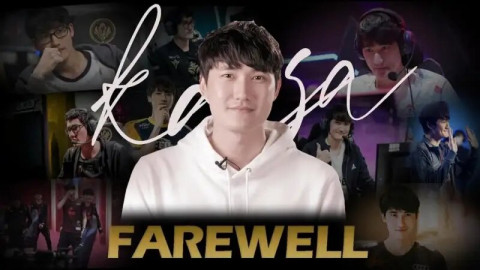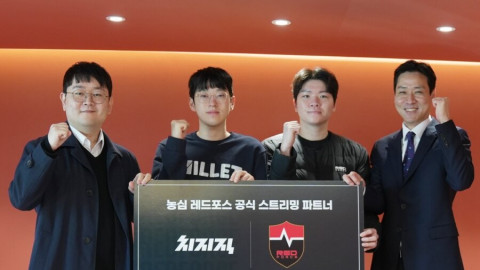
Currently, the Overwatch community is going through some Mercy related headaches. It has nothing to do with a lack of Mercy players or the hero’s balance, instead, the issue is about dedicated Mercy players rising too quickly in the competitive ranking and the problems that arise.
Apparently, the issue that players are starting to notice comes from the way OW handles matchmaking. Jeff Kaplan once posted an exhaustive and in-depth explanation of his matchmaking philosophy, and you can find the full post here. For the sake of this discussion, take note of this particular passage:
“Not all wins and losses are equal. We also look at your individual performance on each of the heroes you played during the match. Everyone has better and worse heroes and we have tons of data showing us what performance levels should be like on those heroes. We also look at your opponents and whether or not their matchmaking rating is higher or lower than yours. These are just a few of the things that are considered when determining how your skill should go up or down.
The data showing Blizzard “what performance levels should be like” when playing Mercy likely include things like resurrects per game, time spent alive, healing numbers and other Mercy specific markers. No one but Blizzard can know for sure what the specific data is, but we can assume it is their best attempt at identifying a skilled Mercy player.
Since dedicated Mercy players are, understandably, thought to be better at playing Mercy than an average flex player, the system can be used to reliably differentiate between average Mercy players and outstanding ones.
Forming bad habits
Sounds like a good way to distinguish a skilled Mercy and subsequently make them rise higher in rank, right? In theory, yes, but some noticeable flaws have started to emerge. Skilled Mercy play is much more nuanced than big resurrect numbers or raw healing and the subtle aspects of being a pro-Mercy aren’t being picked up by Blizzard’s big data approach to personal SR. The result is “one-trick” Mercy players with bad solo-queue habits rising too high and too quickly on the competitive ladder.
Pro player and streamer Seagull explains it in this clip from his stream:
“The reason why there are so many Mercy one tricks is because, honestly, if you are really good at Mercy it doesn’t really translate to other characters as easily. What ends up happening is, the solo-queue style of Mercy and the tournament style of Mercy are two very different things. Being a good Mercy in tournament is pretty rough. Being a good Mercy in solo queue a lot of the times … I mean half my games in GM you see Mercys all the time and usually they just hide for res. That isn’t a very engaging or very difficult thing to do to; just be like, ‘wow, I think my whole team is about to explode let me go hide and then press Q.’ That’s just how it goes.”
These solo queue style of Mercy may gain big SR numbers and gold medals, but they aren’t contributing to the team in a way that really matters. As described by Seagull, at higher levels of play it isn't effective and is painfully common. For example, this popular moment from Beeftipsy’s stream captures one of the more vexing moments that can happen when playing with Master / GM Mercy players who are more concerned with a big resurrect (that subsequently raises that SR) than strategic play.

This clip is just one example, but it represents a worrying trend. When the game rewards Mercy mains for playing in this manner, it teaches selfish play that ensures their steady SR climb at the detriment of their teammates. Truly skillful Mercy has a learning curve that noticeably separates from other heroes and, apparently, it is difficult for Blizzard’s algorithm to properly detect and reward it.
Scott Mercer, Principal Designer for Overwatch addressed the growing concern over SR and supports in this official post:
“We’re still seeing anecdotal reports of some players experiencing lower SR gains on wins, but we’ve also been seeing other reports from other support players that their SR gains look correct. Based upon our investigations so far doesn’t look like there’s a broad systemic issue affecting all supports across all competitive matches. There might be a more localized issue affecting a specific hero, or a certain type of play style or game situation. It also might be something completely unexpected, so we’re doing a thorough examination of all the code that affects SR adjustment.”
Despite Mercer explaining how SR gains are generally are working as intended, it’s telling that he conceded to a possible “localized issue” that is caused by “a specific hero” or “a certain type of play style”. It seems clear that Mercy players who are stuck in a solo queue mentality are one of these problem playstyles and, until something is changed about it, they will continue to rise through the rankings at abnormally high rates.

Streamer and pro player for Cloud9, Mendokusaii, noticed hard evidence of this trend on his stream. His incredulous reaction to a Mercy main with an abysmal 21% win percentage currently placed as 3779 in Master is a sentiment shared by the majority of the competitive community.
it's still unclear whether these are one-of incidents or hints at a larger problem. Lately, the competitive Overwatch subReddit has been filled with similar stories about Mercy players and inflated SR. It's possible that Mercy's unique play style might naturally attract differing opinions of what optimal play is, but these concerns seem more about Blizzard's hero specific SR adjustments that encourage greedy play.
-

Warcraft 3 is my one true love and I will challenge anyone to a game of Super Smash Brothers Melee.
Sort by:
Comments :0





